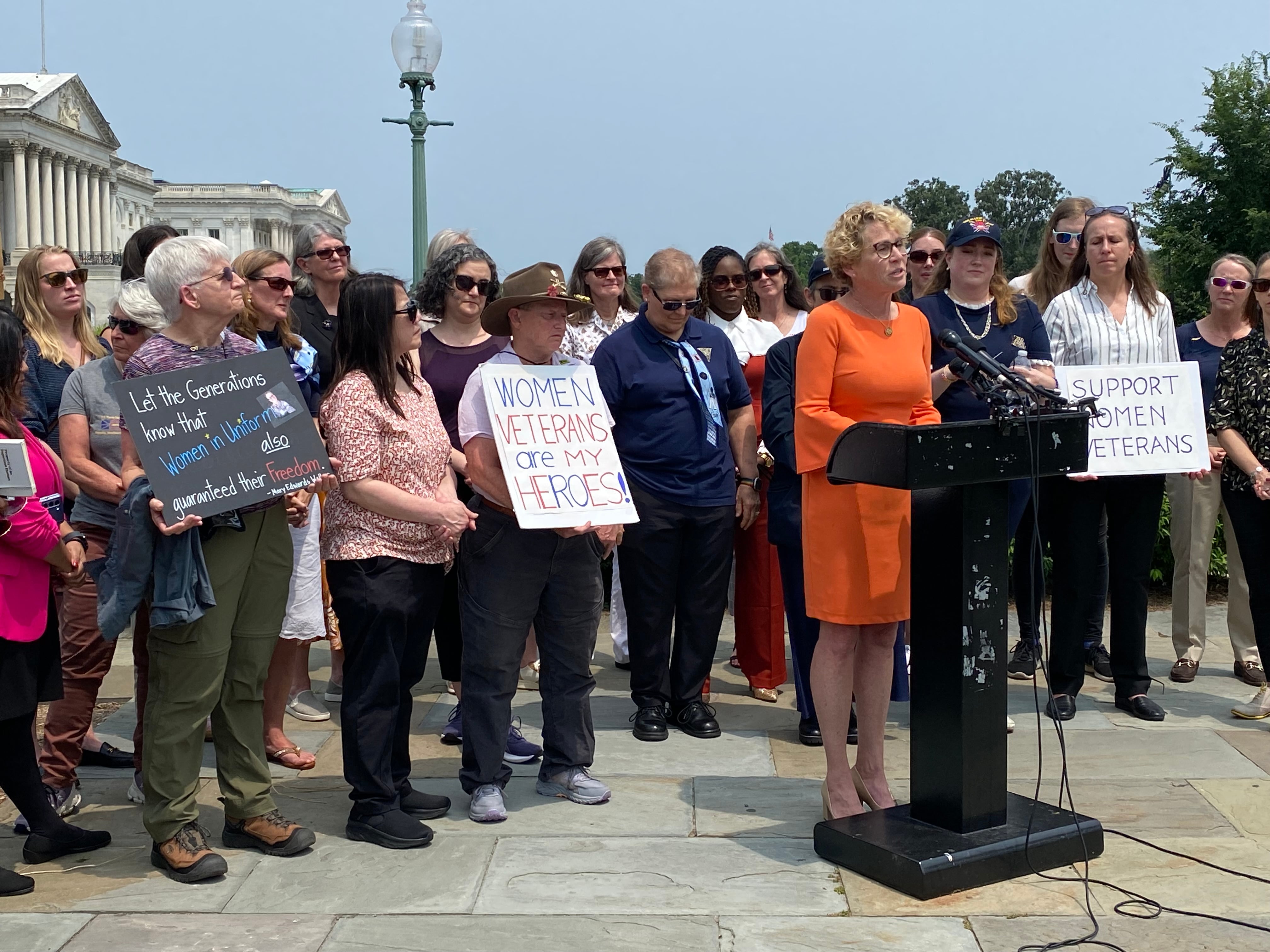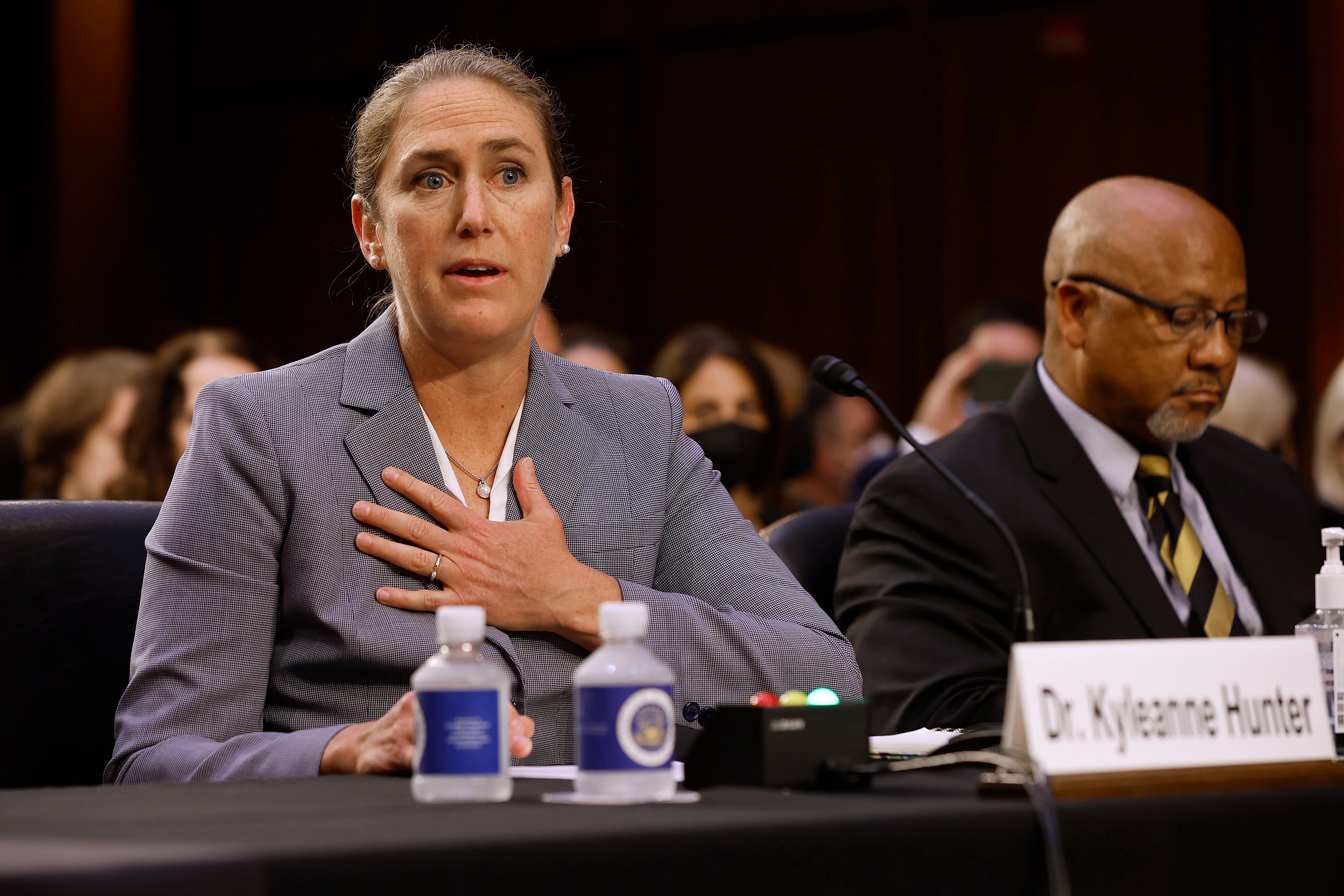WASHINGTON ― The Pentagon’s chief weapons buyer said he expects Congress to approve new authorities and spending to expand U.S. weapons production in a manner unseen since the Cold War.
To help Ukraine fight Russia and to refill U.S. stockpiles, Undersecretary of Defense for Acquisition and Sustainment Bill LaPlante has for several months called for the Pentagon to receive multiyear contracting authorities for munitions that are typically reserved for Navy vessels and major aircraft.
At a broader discussion at George Mason university last week, LaPlante said he believes Congress will grant the authority and the corresponding dollars.
“They are supportive of this. They’re going to give us multiyear authority, and they’re going to give us funding to really put into the industrial base ― and I’m talking billions of dollars into the industrial base ― to fund these production lines,” LaPlante said of lawmakers Friday. “That, I predict, is going to happen, and it’s happening now. And then people will have to say: ‘I guess they were serious about it.’ But we have not done that since the Cold War.”
Last month, Senate Armed Services Committee leaders introduced a bipartisan amendment that would grant the Pentagon wartime procurement powers, allowing it to buy massive amounts of high-priority munitions. The Senate is expected to vote on the underlying bill, the National Defense Authorization Act, this month.
As drafted, the amendment would let the Pentagon lock in purchases of certain munitions made by Lockheed Martin, Raytheon Technologies, BAE Systems, and Kongsberg Defence and Aerospace over fiscal 2023 and fiscal 2024, a step aimed at encouraging manufacturers to expand production lines for sought-after munitions.
In spite of the billions of dollars in U.S. weapons sent to Ukraine over recent months, some defense firms have said the necessary funding to boost weapons production hasn’t materialized. LaPlante seemed to support that view, saying the starting gun for industry will be formal contracting action by the government.
“Once they see we’re going to put money against it and it’s credible, they’ll get it. Their job is to see where we’re putting our money and to try to capture it,” he said of defense executives. “All that matters is [request for proposals], the contract and the funding. We have not contracted and put in RFPs and [acquisition] strategies assuming large-scale production numbers.”
U.S. Defense Secretary Lloyd Austin in Brussels last month pushed to galvanize allied defense-industrial bases “to fire up production for the systems to defend Ukraine, even while meeting our own security needs.” There, LaPlante chaired a group of more than 40 national armaments directors to iron out common problems ― and one of them is that foreign defense firms are also questioning the durability of the Ukraine support effort.
“What industry means, and I get this, is: ‘Are you serious? Sure, you’re going to put a bunch of money against this now during the crisis, but two years from now, you’re going to leave me holding the bag,’” LaPlante said.
Congress already greenlit more than $60 billion in aid to Ukraine, but continuing support has become an issue in U.S. midterm elections, set for Nov. 8. House GOP leader Kevin McCarthy warned last month that Republicans will not write a “blank check” for Ukraine if they win back the House majority, reflecting his party’s growing skepticism.
For Pentagon acquisitions, LaPlante said, the crisis in Ukraine ought to inject a new focus on whether a weapon is easily mass produced and functions as well as whether troops can be trained on it quickly ― and whether it’s applicable in the Pacific.
Those factors should be part of conversations about the viability of developmental projects that rely on emerging technologies or nontraditional avenues like the Defense Innovation Unit and other transaction authorities.
“If somebody gives you a really cool, liquored-up story about a DIU or OTA, ask him when it’s going to production; ask him how many numbers; ask him what the [unit cost] is going to be; ask him about work against China,” La Plante said. “Ask them all those questions because that’s what matters.”
“The tech bros aren’t helping us too much in Ukraine; they want to,” he added. “Ukraine is not holding their own against Russia with quantum [computing], they’re not they’re not holding their own with [artificial intelligence]. They’re not ― whatever your favorite gadget is. It’s hardcore production of really serious weaponry.”
Joe Gould was the senior Pentagon reporter for Defense News, covering the intersection of national security policy, politics and the defense industry. He had previously served as Congress reporter.





